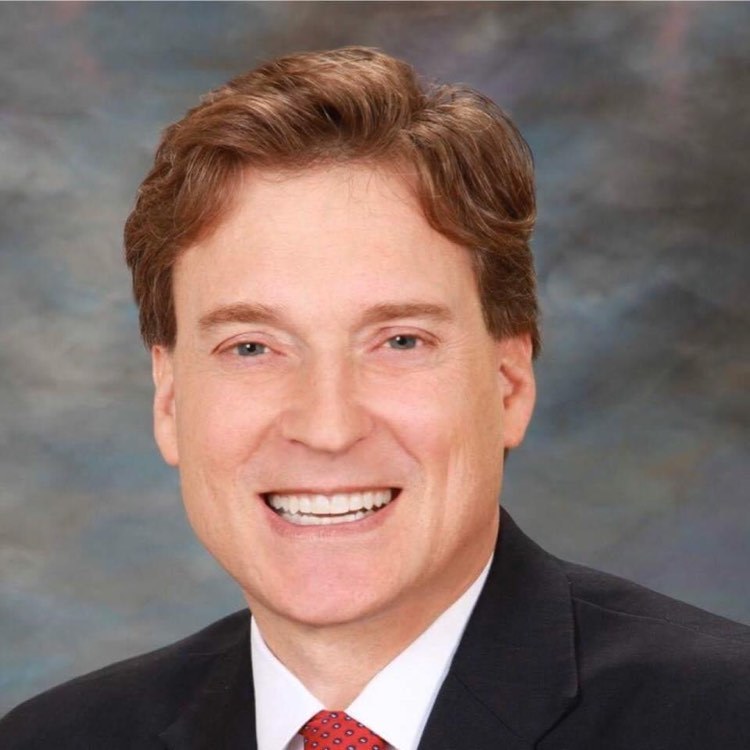Over the weekend, Democrat State Sen. Claire Celsi called GOP Rep. Eddie Andrews, the only black Republican legislation in the Iowa Capitol, a “sellout.”
Representative Jon Jacobsen provided a tribute to Dr. Walter E. Williams on Monday afternoon before seemingly taking a swipe at Celsi for her racist remark about Andrews.
“I salute all of our African-American conservative scholars that often are not as renowned in the popular media culture but who have provided so much to the intellectual discourse of conservatism, beginning with William F. Buckley at National Review, extending through the Reagan Administration and now the writings just recently of Dr. Thomas Sowell at age 90 better than ever before.
“I salute all of my African-American colleagues that have contributed so much in the United States, and for those who have been marginalized, who have been called sellouts or Uncle Toms, this is something that I declare, I declare it must be cured. Because it’s like a cancerous cell, see, envision it. A metastasizing cancerous cell, see it. So we need to move on and we need to be united and we need to respect all people, whatever their ideology is when it’s brought to the great marketplace of ideas. Rest in peace Dr. Walter E. Williams.”
Jacobsen’s full remarks on Dr. Williams can be found below:
From a eulogy tribute to Dr. Williams from his former doctoral student at George Mason University, Economics/Mathematics Professor Dr. Peter Jacobsen:
“Dr. Walter E. Williams, renowned economist—and my teacher—has passed away. He was 84. His accomplishments as a researcher, teacher, and public intellectual are too great to number in a single article, so I’ve decided to write about the side of Dr. Williams I was blessed to experience personally: Walter Williams the teacher.
Economics Educator Extraordinaire
“I think you’re right, but it’s kind of clumsy.”
Those were the first words Walter Williams said to me after my long-winded answer to a question about the paradox of value. Dr. Williams, like all great teachers, understood the most important thing in economics was getting the fundamentals right. Like the great UCLA Basketball coach John Wooden taught each of his players to tie their shoes, Dr. Williams had us tie our proverbial shoes every lecture in our PhD Microeconomic Theory class. Concepts and phrases like “production”, “utility”, and “consumption” we took for granted were often the target of refinement by our professor.
However, he never did so to tear us down. Rather, he pushed students to perform at the highest level he could by probing our knowledge with grace and humor. His examples were both relatable and funny.
Although there are too many examples to include, I’ve added testimonials by some of Dr. Williams’s students over the years about what they enjoyed about him as a teacher. But first, I’d like to offer one last anecdote of my own.
Builder of Bridges
Dr. Williams once posed a puzzle to us which was originally posed by his teacher (the late, great Armen Alchian) for which he claimed to have no satisfactory answer. He asked, “why is it that present generations produce goods from which future generations many years ahead of them benefit? That is the people who built the Brooklyn bridge, they’re all dead, but current generations benefit from their sacrifices. Why’d they do that?”
Dr. Williams batted our answers down with relative ease. Although, to my knowledge, he never received a satisfactory answer, Dr. Williams has become a subject of his very own puzzle. I’m reminded by a poem by William Allen Dromgoole about an old man who, after crossing a large stream, took time to build a bridge behind him. When a fellow traveler asked him why he bothered to build a bridge after already passing, the old man responded:
This chasm, that has been naught to me,
To that fair-haired youth may a pitfall be.
He, too, must cross in the twilight dim;
Good friend, I am building this bridge for him.
Like the subject of his puzzle, and the old man in Dromgoole’s poem, Dr. Williams was a bridge-builder.
In the 40 years he served as professor at George Mason University, Dr. Williams imparted the fundamentals of economics in the property rights tradition of UCLA to his students. He could have gotten by with being less focused on teaching, as he had multiple streams of income, but instead he produced in the minds of his students an understanding of economics that will long outlast him and bless many a “fair-haired youth.” Despite the fact that my cohort was one of the last groups of students lucky enough to see him lecture, we will not be the last of his students. Dr. Williams’s influence will continue to operate in a generation of economics teachers which, like a sturdy bridge, will continue his legacy.
I would like to take one more stab at Dr. Williams’s puzzle: why do mortal beings, like he himself, create value that will outlast them? Dr. Williams once described love as when you receive utility because another person receives utility. So, although Dr. Williams would scorn my unfalsifiable preference-based explanation, I believe this is the reason why he worked so hard for his students. Dr. Williams loved his students and the science of economics, and that is why he bequeathed so much to us.”












